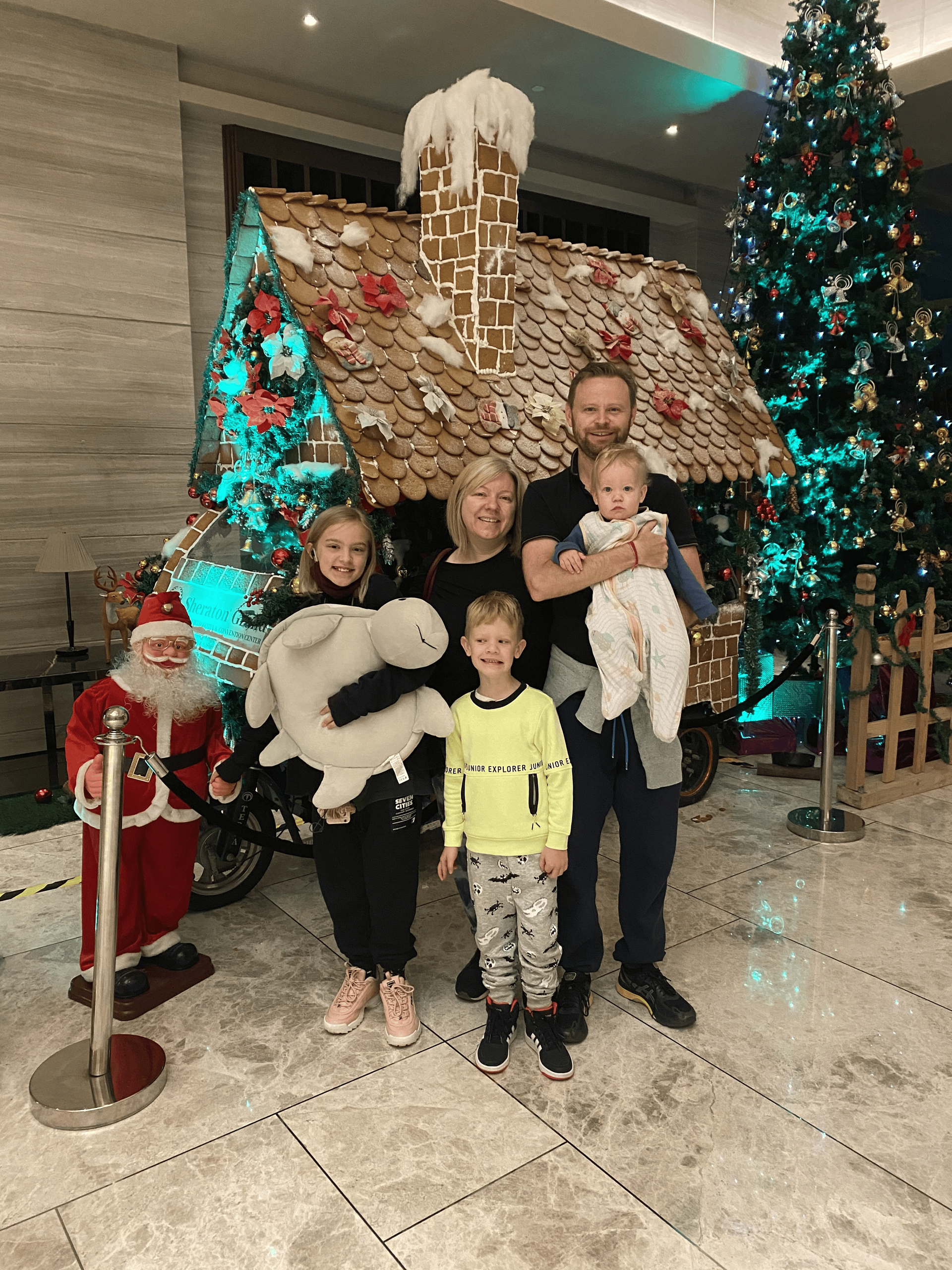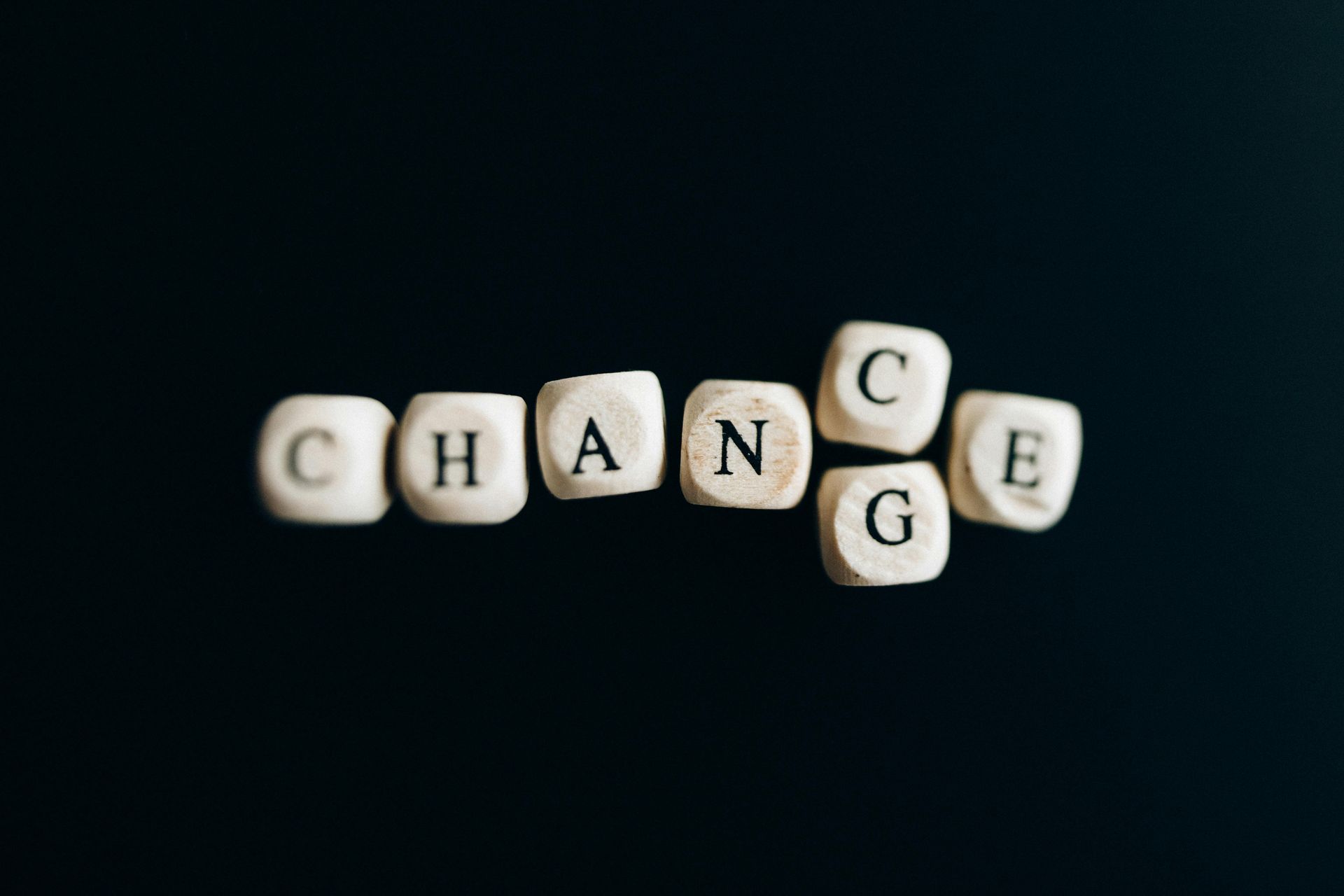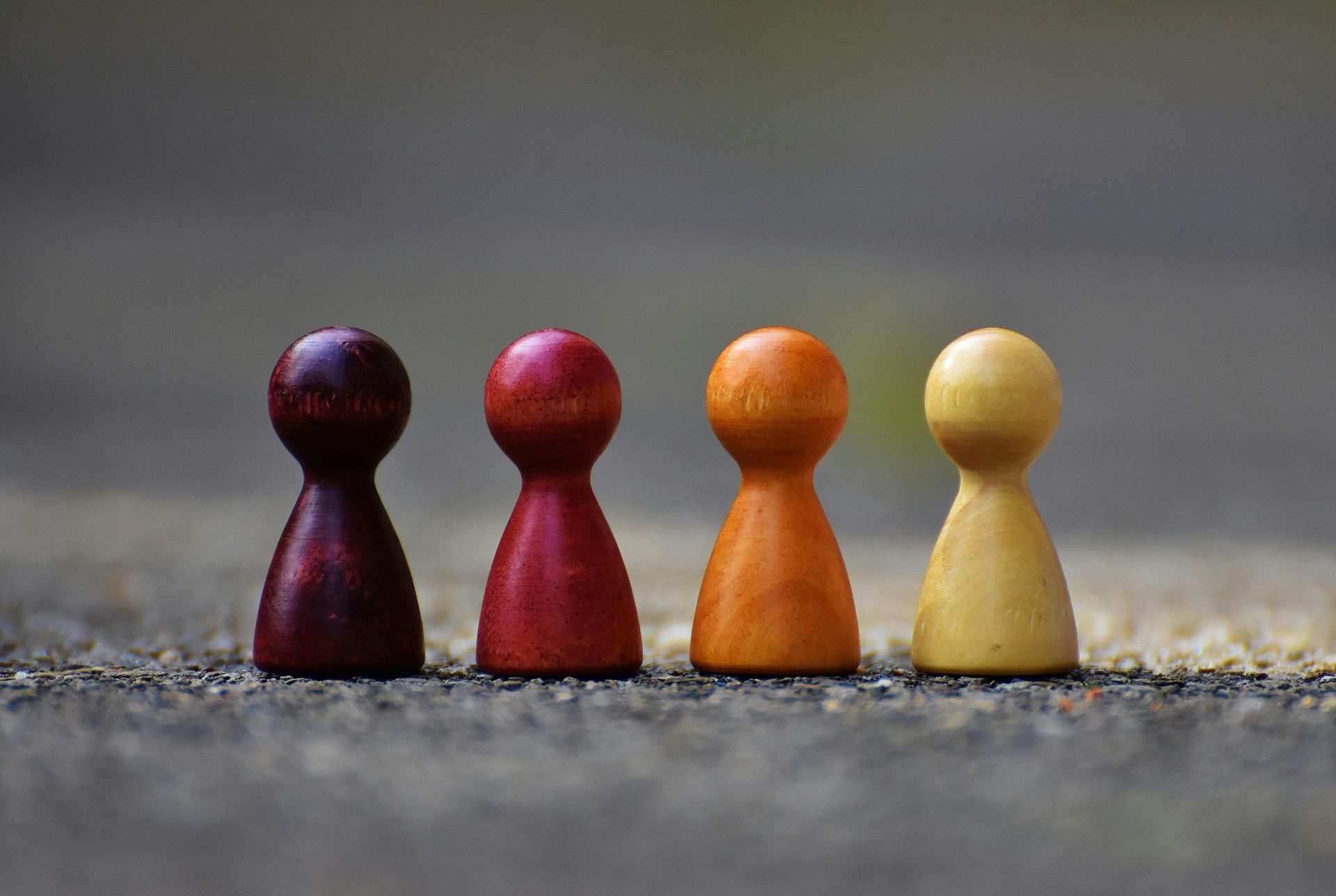Learning to Trust Yourself Again: From External Validation to Inner Authority
I was recently asked whether there was a specific moment when I knew I wanted to do things differently. With all the adventures I've had, it took me a while to pinpoint the most powerful one, but my mind took me back to 2020 - sitting alone in my home office in Bangalore during the first year of the Covid pandemic.
I realized I needed to talk to someone about how I was feeling, but for the first time in my career, I was stumped about who to call. Despite having great relationships with colleagues around the world, this felt different. More personal. More frightening.
Here's why: By every external measure, I was succeeding. International banking career spanning three countries. Teams of 1,500 people. A decade of navigating complex relocations while building a family. But I felt exhausted, disconnected, and increasingly lost.
And there's an unspoken rule about this situation - when you have everything that looks like success, you're not supposed to feel this way.
The Path That Led Me Here
My international journey began in 2014 when we relocated from the UK to Dubai. Our daughter was four, and in a twist of perfect timing, I discovered I was pregnant with our second child on the same day I got the job offer in the UAE. Despite friends and family suggesting we reconsider given I was pregnant and our daughter was due to start school that September, we took the leap.
What followed was a masterclass in resilience I never signed up for. A traumatic birth in Dubai where my son nearly didn't make it, followed by two weeks in NICU. But we had great support from my employer and we stayed, and my career flourished over the next few years as I continued to work on an important strategic, global programme for the Bank.
In 2019, another opportunity called - this time to India, leading a team of 1,500 people across 5 locations. The role was demanding, the Bangalore traffic brutal, but the people and the work were incredible. Then, at 39, I discovered I was pregnant again.
Navigating pregnancy as a "high-risk" case in India's medical system while managing a massive team taught me new levels of determination as I had to advocate for myself in a male dominated environment. Never the less, I eventually found a wonderful female doctor who listened to me and respected me as a third-time mother-to-be with a full time, demanding job. When my youngest son was born in December 2019 - another emergency, another NICU stay - I thought I'd weathered the storm.
I was wrong.
When Everything Shifted
At 11 weeks postpartum, I had to leave my baby and fly to the US because my father, battling Parkinson's, had been hospitalized. The trip was gut-wrenching but necessary. As I connected through Qatar, I noticed people wearing masks but didn't think much of it.
Within days of my return to India, the world shut down. Covid had arrived, borders closed, schools moved to online teaching, and it became clear that I wouldn’t be taking my new baby to meet his relatives that year. I spent my maternity leave in lockdown with my husband, two children and a newborn, and like most people felt very torn about the seemingly blissful time together as family vs the uncertainty and prolonged lack of “freedom”. After a few months, I returned to work and joined my teams in working remotely, juggling home schooling and well-being. I also found that a huge organisational restructure had been announced, starting at the most senior levels, meaning it was likely my role would be impacted in some way.
That's when something fundamental began to shift inside me.
I found myself increasingly feeling the pull of “home” in the UK. Of seeing my family and being near them after so many years overseas. In my spare time, I started watching a British programme called “Escape to the Country” where people relocate to idyllic country locations, dreaming of houses and lifestyles that looked nothing like our successful expat life. I devoured Country Living magazines I'd saved over the years, started listening to podcasts on my daily walks about people who'd left corporate careers to build something different – buying farms, beekeeping, starting their own businesses that had sustainability and community at their core. And Fearne Cotton's Happy Place became a regular listen for me, with its messages about self-acceptance, creating calm, listening to your body and finding healthier ways to live.
Despite regular exercise and good nutrition, my health was deteriorating. High blood pressure, chronic fatigue, Carpal Tunnel syndrome in both hands, complications from my three C-sections. My body was keeping score even when my mind insisted everything was fine.
The pull toward "home" wasn't just homesickness - it was something deeper. A craving to reconnect with familiar surroundings, with childhood memories, with some essential part of myself I'd lost along the way.
The Weight of Responsibility
But this terrified me. As the sole earner supporting my family, it wasn't just my life that would be disrupted. We had a comfortable life that we and the children had loved. How could I admit I wanted something different? It felt like failure, like I couldn't "hack it" - the opposite of everything I was known for.
I felt exhausted, lost, and if I'm honest, a bit ashamed.
Most people at my level seemed to be coping fine. Not many were talking about feeling this way when you're supposed to be thriving. So after some deliberation, I took the first step of finding a therapist in India that I could talk openly with, help me to create a structure and environment where I could be myself (whoever that was!) – and actually, she had an incredible impact.
She didn't try to fix my situation or give me strategies to cope better. Instead, she taught me something revolutionary: how to listen to myself again.
I had to literally learn how to tune into my body's signals after years of overriding them. The detachment I felt - probably a combination of nervous system dysregulation, birth trauma, and accumulated stress - wasn't something I could rationalize my way out of. For someone whose identity was built on solving problems through experience and determination, this was humbling.
The Moment of Truth
As I worked with my therapist and put a better routine in place, as we discussed things openly and honestly, I stopped dismissing the pull of home. I found the courage to admit it was what I really wanted, that there was nothing wrong with this, that it wasn’t failure and that I was allowed to put my needs and wants first, even if that mean it risked impacting other people who relied on me. I was able to have a coherent discussion with my husband about what I really wanted and to ask for his help (not something I’m great at doing!) and then with his support, I had a discussion with my managers and made the request to relocate back to the UK once travel was possible again. Bearing in mind my baby didn’t have a passport a this point because Covid had closed everything down, this was also consideration that required careful planning and managing uncertainty. And again, despite my fear of being seen as weak or less than capable, my managers and the organisation were incredibly sympathetic and supportive. They actually were glad that I was being honest and asking for their help, which they were happy to give.
So over the next few months, we prepared for our planned December move back to the UK, and I thought I had it figured out. I'd would continue to perform my current role from the UK until we had agreed a new one, but the priority was the relocation and getting back to the UK and resettling so that everyone would be happy.
Then, a week before our move, everything changed. My role was put at risk, and I was presented with the option of a redundancy package.
Until that moment, leaving the organization hadn't even occurred to me. I had a shortlist of three potential UK roles, though none particularly excited me - they were either roles I'd done before or lacked the people focus I craved.
But looking at that package, something clicked.
I'd been with the bank for over a decade, working on incredible transformations, leading teams through complex challenges. I'd achieved everything I'd set out to achieve. But I was tired. Exhausted. Slightly disillusioned at the thought of another restructure that would probably be restructured again in two years.
I realized I wanted the next decade of my life to look different. I wanted to learn more, grow in new ways, challenge myself differently. Spend more time with my family. Discover what else I was capable of.
That redundancy package wasn't just about money - it was permission to finally trust what I'd been feeling.
The Decision to Back Myself
That was when I decided to back myself. Not the version that looked good on paper or met everyone else's expectations of success, but the version that had been quietly asking for something different.
I had no clear plan, no guarantees - just an intuitive knowing that this was the right next step.
What I Learned About Trust
Here's what I discovered: trusting yourself isn't about having all the answers. It's about finally listening to the questions your soul has been asking.
It's not about rejecting external input or ignoring practical considerations. It's about remembering that you have an internal compass that deserves as much respect as any external metric.
For years, I'd been asking "Am I doing this right?" – learning to seek validation from performance reviews, salary increases, professional achievements. But the real question at this point was "What feels right for me?"
That shift from external to internal authority changed everything.
Why This Matters
If you're reading this and something resonates, please know that it’s OK to feel this way. I’d go as far as saying you probably SHOULD feel this way at some point in your life. So many of us have been trained to look everywhere except within for guidance about our lives. We've learned to trust systems, structures, and other people's definitions of success more than our own inner knowing.
But here's what I want you to know: you haven't failed if you're successful on paper but feel lost inside. You're not weak if you're tired of pushing through. You're not ungrateful if you want something different.
You're human. And humans aren't designed to thrive when we're completely disconnected from our own inner wisdom.
The courage to trust yourself again isn't necessarily about making dramatic life changes (though it might lead there). It's about remembering that your inner voice - the one that knows when you need rest, when something doesn't feel right, when it's time for change - is worthy of your attention and respect.
You are not broken or incapable. You are not a failure.
You're someone who has been conditioned to look outside yourself for validation and direction, and now you're ready to remember this: that everything you need to know about what's right for your life already lives within you, somewhere, deep down.
The question isn't whether you can trust yourself.
The question is: are you ready to start listening?
Ready to start listening to yourself again? Let's talk.

Our last photo in Bangalore as we were leaving for our flight home - December 2020



